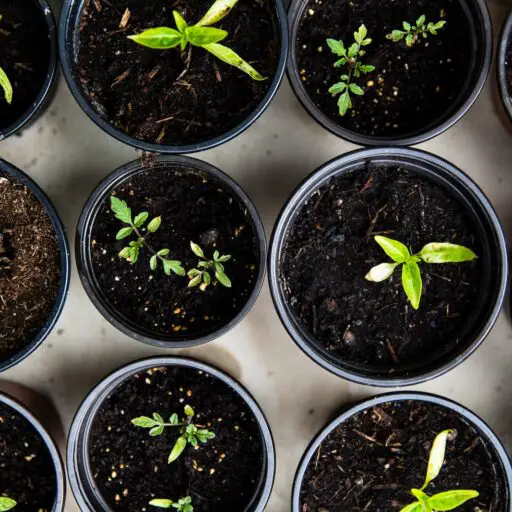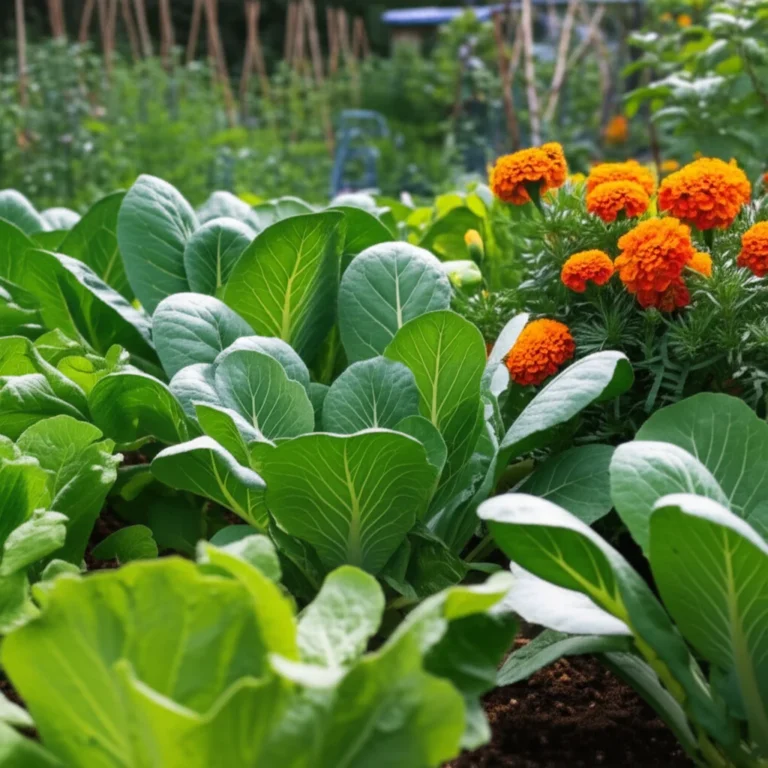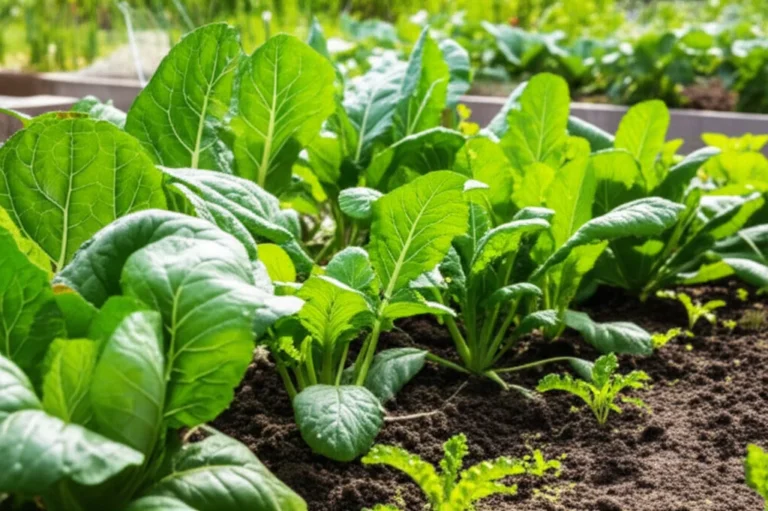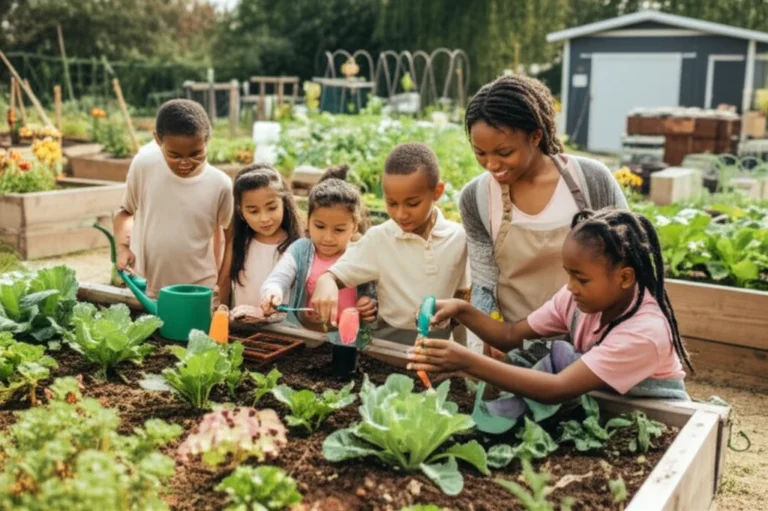Support our educational content for free when you purchase through links on our site. Learn more
Imagine stepping outside after a long day, sinking your hands into the cool, rich soil, and feeling an instant wave of calm wash over you. That’s the magic of gardening—a simple activity with profound effects on your body, mind, and community. But did you know gardening can also boost your immune system, build friendships, save you money, and even help the planet? 🌎
In this comprehensive guide, we’ll dig deep into 15 incredible benefits of gardening that go far beyond just growing plants. Whether you’re a seasoned green thumb or just thinking about planting your first seed, you’ll discover why gardening is one of the most rewarding and healthful hobbies you can adopt in 2025. Ready to uncover the secrets that make gardening the ultimate life hack? Let’s get growing!
Key Takeaways
- Gardening improves physical health by strengthening muscles, enhancing cardiovascular fitness, and boosting vitamin D levels.
- Mental health benefits include stress reduction, improved mood, and increased creativity.
- Community gardening fosters social connections and builds stronger neighborhoods.
- Gardening supports environmental sustainability by reducing carbon footprints and promoting biodiversity.
- Economic perks include saving money on groceries and increasing property value.
- Therapeutic gardening is a proven approach for managing anxiety, depression, and chronic conditions.
- Urban and kids’ gardening bring nature’s benefits to city dwellers and young learners alike.
Ready to start your garden journey? Check out these top-rated tools and seeds to get growing:
- Fiskars Garden Tool Set: Amazon | Walmart | Fiskars Official Website
- Burpee Organic Seeds: Amazon | Burpee Official Website
- Miracle-Gro Garden Soil: Amazon | Walmart | Miracle-Gro Official Website
Dive in and discover how gardening can transform your life—one seed at a time! 🌱
Table of Contents
- Quick Tips and Facts 🌱
- Digging into History: The Roots of Gardening and Its Benefits 🌿
- 1. Top 15 Physical Health Benefits of Gardening 💪
- 2. 12 Incredible Mental Health Benefits of Gardening 🧠
- 3. Gardening as a Social Connector: Building Community and Friendships 🤝
- 4. Environmental Perks: How Gardening Helps the Planet 🌎
- 5. Economic Benefits: Saving Money and Growing Wealth in Your Backyard 💰
- 6. Therapeutic Gardening: Horticultural Therapy and Its Proven Effects 🌸
- 7. Urban Gardening: Bringing Green Spaces to Concrete Jungles 🏙️
- 8. Gardening for Kids: Educational and Developmental Benefits for Little Green Thumbs 🌼
- 9. How to Maximize the Benefits of Gardening: Tips, Tools, and Tricks 🛠️
- Conclusion: Why Gardening Is the Ultimate Life Hack 🌟
- Recommended Links for Garden Enthusiasts 🌻
- FAQ: Your Burning Gardening Questions Answered ❓
- Reference Links: Trusted Sources to Dig Deeper 📚
Quick Tips and Facts 🌱
Gardening is more than just a hobby; it’s a lifestyle choice that offers a wealth of benefits for your physical and mental well-being, your community, and the environment. 🌎
Here are some quick facts to get you started:
- Gardening reduces stress and anxiety: Studies show that spending time in nature, especially gardening, can lower cortisol levels, the stress hormone. Source: NCBI
- Gardening improves sleep quality: The physical activity and exposure to sunlight during gardening can regulate your circadian rhythm, leading to better sleep. Source: Sleep Foundation
- Gardening boosts your immune system: Exposure to soil bacteria, like Mycobacterium vaccae, can stimulate your immune system and reduce inflammation. Source: NCBI
- Gardening can be a great form of exercise: Digging, weeding, and planting provide a full-body workout, improving cardiovascular health and muscle strength. Source: American Heart Association
- Gardening connects you to nature: Being in nature has been shown to reduce stress, improve mood, and increase creativity. Source: NCBI
Did you know? Gardening is a great way to promote gardening in your community! Learn more about how to promote gardening in your community.
Digging into History: The Roots of Gardening and Its Benefits 🌿

Gardening has been a part of human civilization for thousands of years. It’s a practice that goes back to the dawn of agriculture, when our ancestors first learned to cultivate plants for food and shelter.
Early civilizations like the Egyptians, Greeks, and Romans developed sophisticated gardening techniques, creating beautiful and productive gardens. These gardens were not only sources of food but also places of beauty, relaxation, and social gathering.
Over the centuries, gardening has evolved and adapted to different cultures and climates. From the intricate gardens of the Renaissance to the modern-day urban gardens, gardening has always been a reflection of our relationship with nature and our desire to create beauty and abundance.
Today, gardening is more than just a hobby. It’s a powerful tool for improving our health, our communities, and our planet. It’s a way to connect with nature, learn about the environment, and create a more sustainable future.
1. Top 15 Physical Health Benefits of Gardening 💪
Gardening is a full-body workout that can benefit your physical health in many ways. Here are 15 ways gardening can improve your physical well-being:
- Strengthens Muscles: Digging, weeding, and planting require you to use a variety of muscle groups, improving your overall strength and endurance.
- Improves Cardiovascular Health: Gardening is a moderate-intensity activity that can lower your blood pressure, improve your heart rate, and increase blood flow.
- Boosts Bone Density: Weight-bearing activities like gardening can help increase bone density and reduce the risk of osteoporosis.
- Increases Flexibility and Range of Motion: Gardening involves bending, stretching, and reaching, which can improve your flexibility and range of motion.
- Improves Balance and Coordination: Gardening requires you to move around and navigate different terrain, which can improve your balance and coordination.
- Reduces the Risk of Chronic Diseases: Regular physical activity, like gardening, can reduce the risk of developing chronic diseases such as heart disease, stroke, type 2 diabetes, and some types of cancer.
- Increases Vitamin D Levels: Spending time outdoors in the sun helps your body produce vitamin D, which is essential for bone health, immune function, and mood regulation.
- Improves Sleep Quality: Physical activity and exposure to sunlight can regulate your circadian rhythm, leading to better sleep.
- Reduces Stress and Anxiety: Gardening has been shown to reduce cortisol levels, the stress hormone, and improve mood.
- Boosts Your Immune System: Exposure to soil bacteria, like Mycobacterium vaccae, can stimulate your immune system and reduce inflammation.
- Improves Digestion: Gardening can help regulate your digestive system by increasing your intake of fiber-rich fruits and vegetables.
- Increases Energy Levels: Regular physical activity can increase your energy levels and reduce fatigue.
- Improves Cognitive Function: Gardening can help improve cognitive function, memory, and attention.
- Reduces the Risk of Falls: Gardening can improve balance and coordination, which can reduce the risk of falls, especially in older adults.
- Promotes a Healthy Lifestyle: Gardening encourages a healthy lifestyle by promoting physical activity, healthy eating, and spending time outdoors.
2. 12 Incredible Mental Health Benefits of Gardening 🧠
Gardening is not just good for your body; it’s also a powerful tool for improving your mental health. Here are 12 ways gardening can benefit your mind:
- Reduces Stress and Anxiety: Spending time in nature, especially gardening, can lower cortisol levels, the stress hormone. The repetitive motions of gardening, like weeding and watering, can be calming and meditative.
- Improves Mood: Gardening has been shown to increase serotonin and dopamine levels, neurotransmitters associated with happiness and well-being.
- Boosts Self-Esteem: Successfully growing plants can give you a sense of accomplishment and boost your self-confidence.
- Increases Creativity: Gardening can stimulate your creativity by encouraging you to experiment with different plants, colors, and designs.
- Promotes Mindfulness: Gardening requires you to be present in the moment, focusing on the task at hand and appreciating the beauty of nature.
- Provides a Sense of Purpose: Gardening can give you a sense of purpose and meaning, especially if you’re growing food for yourself or others.
- Connects You to Nature: Being in nature has been shown to reduce stress, improve mood, and increase creativity.
- Offers a Sense of Control: Gardening can give you a sense of control over your environment and your life, which can be empowering.
- Provides a Social Outlet: Gardening can be a social activity, connecting you with other gardeners and building community.
- Encourages Patience: Gardening requires patience and perseverance, as plants take time to grow. This can teach you to be more patient and accepting of the natural world.
- Promotes Gratitude: Gardening can help you appreciate the simple things in life, like the beauty of a flower or the taste of a homegrown tomato.
- Reduces Symptoms of Depression: Gardening has been shown to reduce symptoms of depression and anxiety.
3. Gardening as a Social Connector: Building Community and Friendships 🤝
Gardening is a social activity that can bring people together from all walks of life. Here are some ways gardening can foster community and friendships:
- Community Gardens: Community gardens are shared spaces where people can grow food, learn about gardening, and build relationships with their neighbors. These gardens can be a source of fresh produce, social interaction, and community pride.
- Gardening Clubs and Groups: There are many gardening clubs and groups that meet regularly to share tips, advice, and plants. These groups can be a great way to learn from experienced gardeners and make new friends.
- Volunteer Gardening: Volunteering at a community garden or other gardening project is a great way to give back to your community and meet new people.
- Sharing Plants and Seeds: Sharing plants and seeds with friends and neighbors is a great way to connect and build relationships.
- Gardening with Children: Gardening with children is a fun and educational activity that can teach them about nature, responsibility, and teamwork.
Community Gardening™ is a great example of how gardening can build community. We offer a variety of programs and resources to help people connect with each other and the natural world. Learn more about Community Gardening™.
4. Environmental Perks: How Gardening Helps the Planet 🌎
Gardening is not only good for you, but it’s also good for the planet. Here are some ways gardening can help protect the environment:
- Reduces Your Carbon Footprint: Growing your own food reduces the need for transportation and packaging, which lowers your carbon footprint.
- Conserves Water: Using water-wise gardening techniques, such as drip irrigation and mulching, can help conserve water.
- Improves Soil Health: Gardening with organic methods, such as composting and using natural fertilizers, can improve soil health and reduce erosion.
- Supports Biodiversity: Planting a variety of native plants can attract pollinators and other beneficial insects, supporting biodiversity.
- Reduces Pollution: Gardening can help reduce air and water pollution by absorbing pollutants and filtering rainwater.
- Creates Green Spaces: Gardens can provide green spaces in urban areas, which can help reduce heat islands and improve air quality.
- Educates About the Environment: Gardening can teach people about the natural world and how to live more sustainably.
Did you know? A single tree can absorb up to 48 pounds of pollutants and 100 pounds of carbon dioxide per year! Source: Trees for Life
5. Economic Benefits: Saving Money and Growing Wealth in Your Backyard 💰
Gardening can be a smart financial decision, helping you save money and even generate income. Here are some economic benefits of gardening:
- Reduces Grocery Bills: Growing your own fruits and vegetables can significantly reduce your grocery bills.
- Provides Fresh, Healthy Food: Homegrown produce is often fresher and more nutritious than store-bought produce.
- Increases Property Value: A well-maintained garden can increase the value of your property.
- Generates Income: You can sell surplus produce at farmers’ markets, roadside stands, or to local restaurants.
- Reduces Waste: Gardening can reduce food waste by allowing you to use all parts of the plant, from roots to leaves.
- Provides a Source of Income for Low-Income Communities: Community gardens can provide a source of income for low-income communities by allowing them to grow and sell food.
- Creates Jobs: The gardening industry creates jobs in areas such as landscaping, horticulture, and agriculture.
Tip: Start small and gradually expand your garden as you gain experience. You can also try growing high-value crops, such as herbs, berries, and specialty vegetables.
6. Therapeutic Gardening: Horticultural Therapy and Its Proven Effects 🌸
Horticultural therapy is a form of therapy that uses gardening activities to improve physical, cognitive, and emotional well-being. It’s a growing field that’s being used to help people with a wide range of conditions, including:
- Mental Health Disorders: Gardening can reduce stress, anxiety, and depression. It can also improve mood, self-esteem, and cognitive function.
- Physical Disabilities: Gardening can help people with physical disabilities improve their strength, flexibility, and coordination.
- Cognitive Impairment: Gardening can help people with cognitive impairment improve their memory, attention, and problem-solving skills.
- Substance Abuse: Gardening can provide a healthy and constructive outlet for people recovering from substance abuse.
- Chronic Pain: Gardening can help people with chronic pain manage their pain and improve their quality of life.
How does horticultural therapy work?
Horticultural therapy uses the therapeutic properties of plants and gardening activities to promote healing and well-being. The benefits of horticultural therapy are thought to be due to a combination of factors, including:
- Physical Activity: Gardening provides a moderate-intensity workout that can improve cardiovascular health, muscle strength, and flexibility.
- Exposure to Nature: Spending time in nature has been shown to reduce stress, improve mood, and increase creativity.
- Sensory Stimulation: Gardening provides a variety of sensory experiences, such as the smell of flowers, the feel of soil, and the sound of birds singing.
- Social Interaction: Gardening can be a social activity, connecting people with each other and building community.
- Sense of Accomplishment: Successfully growing plants can give people a sense of accomplishment and boost their self-confidence.
If you’re interested in learning more about horticultural therapy, here are some resources:
- American Horticultural Therapy Association (AHTA): https://www.ahta.org/
- The National Gardening Association (NGA): https://www.garden.org/onlinecourse/PartI5.htm
- The Royal Horticultural Society (RHS): https://www.rhs.org.uk/
7. Urban Gardening: Bringing Green Spaces to Concrete Jungles 🏙️
Urban gardening is a growing trend that’s bringing the benefits of gardening to cities around the world. Urban gardens can be found in a variety of places, including:
- Rooftops: Rooftop gardens can help reduce the urban heat island effect, improve air quality, and provide green spaces for residents.
- Backyards: Backyard gardens can provide fresh food, beauty, and a sense of connection to nature.
- Community Gardens: Community gardens are shared spaces where people can grow food, learn about gardening, and build relationships with their neighbors.
- Vertical Gardens: Vertical gardens are a space-saving solution for growing plants in urban areas.
- Window Boxes: Window boxes are a great way to add greenery to apartments and other small spaces.
Benefits of Urban Gardening:
- Provides Fresh Food: Urban gardens can provide a source of fresh, healthy food for residents.
- Improves Air Quality: Plants absorb pollutants from the air, improving air quality in urban areas.
- Reduces the Urban Heat Island Effect: Green spaces can help reduce the urban heat island effect, which is the phenomenon of cities being hotter than surrounding rural areas.
- Creates Green Spaces: Urban gardens can provide green spaces in urban areas, which can help improve mental health and well-being.
- Promotes Community: Urban gardens can bring people together, fostering a sense of community and social interaction.
If you’re interested in starting an urban garden, here are some resources:
- The National Gardening Association (NGA): https://www.garden.org/onlinecourse/PartI5.htm
- The American Horticultural Therapy Association (AHTA): https://www.ahta.org/
- The Urban Farming Institute: https://www.urbanfarminginstitute.org/
8. Gardening for Kids: Educational and Developmental Benefits for Little Green Thumbs 🌼
Gardening is a wonderful activity for kids of all ages. It’s a fun and educational way to teach them about nature, responsibility, and healthy living. Here are some benefits of gardening for kids:
- Develops Motor Skills: Gardening involves a variety of physical activities, such as digging, planting, and watering, which can help develop fine and gross motor skills.
- Encourages Creativity: Gardening allows kids to experiment with different plants, colors, and designs, fostering their creativity.
- Teaches Responsibility: Caring for plants teaches kids about responsibility, patience, and the importance of nurturing life.
- Promotes Healthy Eating: Growing their own food can encourage kids to eat more fruits and vegetables.
- Connects Them to Nature: Spending time in nature can help kids develop a love and appreciation for the natural world.
- Improves Social Skills: Gardening can be a social activity, connecting kids with other gardeners and building community.
- Boosts Self-Esteem: Successfully growing plants can give kids a sense of accomplishment and boost their self-confidence.
Tips for Gardening with Kids:
- Start small: Begin with a small garden plot or container garden.
- Choose easy-to-grow plants: Select plants that are known for being easy to care for, such as sunflowers, tomatoes, and beans.
- Make it fun: Involve kids in every step of the gardening process, from planting to harvesting.
- Be patient: Remember that kids are learning, so be patient and encouraging.
Here are some resources for gardening with kids:
- The National Gardening Association (NGA): https://www.garden.org/onlinecourse/PartI5.htm
- The National Wildlife Federation: https://www.nwf.org/
- The Children’s Garden Movement: https://kidsgardening.org/
9. How to Maximize the Benefits of Gardening: Tips, Tools, and Tricks 🛠️
Ready to get your hands dirty? Here are some tips, tools, and tricks to help you maximize the benefits of gardening:
1. Start Small and Grow Gradually
Don’t feel pressured to create a huge garden right away. Start with a small plot or container garden and gradually expand as you gain experience. This will help you avoid feeling overwhelmed and ensure that you can properly care for your plants.
2. Choose the Right Plants for Your Climate and Location
Consider your climate, soil type, and amount of sunlight when choosing plants. Select plants that are well-suited to your growing conditions. You can consult with local nurseries or gardening experts for advice on plant selection.
3. Prepare the Soil
Healthy soil is essential for healthy plants. Before planting, amend your soil with compost, manure, or other organic matter to improve drainage, aeration, and nutrient content.
4. Water Wisely
Water your plants deeply and infrequently, allowing the soil to dry out slightly between waterings. Avoid overwatering, which can lead to root rot.
5. Use Organic Methods
Use organic fertilizers, pest control methods, and weed control techniques to protect the environment and promote healthy plant growth.
6. Mulch Your Garden
Mulch helps retain moisture, suppress weeds, and regulate soil temperature. Use organic mulch, such as wood chips, straw, or shredded leaves.
7. Use the Right Tools
Invest in quality gardening tools, such as a trowel, hand rake, pruning shears, and watering can. These tools will make gardening easier and more enjoyable.
8. Get Creative with Your Garden Design
Don’t be afraid to experiment with different plant combinations, colors, and textures. Create a garden that reflects your personal style and interests.
9. Join a Gardening Club or Group
Joining a gardening club or group is a great way to learn from experienced gardeners, share tips, and make new friends.
10. Share Your Harvest
Share your harvest with friends, neighbors, or local food banks. This is a great way to give back to your community and promote healthy eating.
Conclusion: Why Gardening Is the Ultimate Life Hack 🌟

Wow, what a journey through the lush, vibrant world of gardening! From boosting your physical health and mental well-being to nurturing your community and planet, gardening truly is the Swiss Army knife of life hacks. 🛠️🌿
We’ve uncovered how gardening can:
- Strengthen your heart and muscles while soaking up vitamin D ☀️
- Calm your mind and reduce stress with every dig and seed planted 🧘♂️
- Build friendships and social bonds that grow as naturally as your tomatoes 🍅
- Help the environment by cleaning the air and supporting biodiversity 🐝
- Save you money and even generate income from your green thumb 💰
- And serve as a therapeutic tool for those facing physical or mental health challenges 🌸
If you’ve been hesitating, now’s the time to grab a trowel and start planting! Remember, gardening is a journey—start small, learn as you go, and enjoy every moment of growth (both yours and your plants’).
At Community Gardening™, we’ve seen firsthand how gardens transform lives and neighborhoods. Whether you’re a seasoned gardener or a curious newbie, there’s a patch of earth waiting for you to make it your own.
Ready to dig in? 🌱
Recommended Links for Garden Enthusiasts 🌻
Looking for the best tools, seeds, and inspiration to kick off or level up your gardening game? Check these out:
Gardening Tools & Supplies
- Fiskars Garden Tool Set: Amazon | Walmart | Fiskars Official Website
- Burpee Organic Seeds: Amazon | Burpee Official Website
- Miracle-Gro Garden Soil: Amazon | Walmart | Miracle-Gro Official Website
Books to Grow Your Knowledge
- The Well-Tended Perennial Garden by Tracy DiSabato-Aust: Amazon
- The Garden Primer by Barbara Damrosch: Amazon
- Therapeutic Horticulture: A Guide for All Seasons by Clare Cooper Marcus: Amazon
FAQ: Your Burning Gardening Questions Answered ❓

How does community gardening improve mental health and wellbeing?
Community gardening combines the therapeutic benefits of nature exposure with social interaction—a potent recipe for mental wellness. Being outdoors reduces cortisol (stress hormone) levels and boosts serotonin, the “feel-good” neurotransmitter. Plus, working alongside neighbors fosters a sense of belonging and purpose, which combats loneliness and depression. Studies have shown that community gardeners report higher self-esteem and lower anxiety than non-gardeners. Learn more about community garden benefits.
Read more about “What Are the 9 Surprising Social Impacts of Gardening? 🌿 (2025)”
What are the physical health benefits of gardening for people of all ages?
Gardening is a low-impact, full-body workout suitable for all ages. It builds muscle strength, improves flexibility, and enhances cardiovascular health. For older adults, it helps maintain balance and dexterity, reducing fall risk. Kids develop motor skills and healthy habits early on. Plus, the sunlight exposure helps with vitamin D synthesis, essential for bone health and immune function. The combination of physical activity and fresh air makes gardening a natural prescription for a healthier body.
Read more about “Advantages and Disadvantages of Home Gardening … 🌱”
Can gardening be a form of therapy for people with anxiety and depression?
Absolutely! Horticultural therapy is a recognized therapeutic approach that uses gardening activities to improve emotional and cognitive health. The rhythmic, mindful tasks of planting and tending plants help reduce anxiety and depressive symptoms by promoting relaxation and focus. The sense of accomplishment from nurturing life boosts self-esteem. Many hospitals and mental health centers incorporate therapeutic gardens to support patient recovery. American Horticultural Therapy Association is a great resource.
Read more about “Discover 15 Positive Effects of Gardening on Mental Health 🌱”
How does participating in a community garden help build social connections and friendships?
Community gardens are natural social hubs. They bring together people with a shared interest, creating opportunities for collaboration, knowledge exchange, and mutual support. Working side-by-side fosters trust and camaraderie, often blossoming into lasting friendships. These social ties improve mental health and create a stronger, more resilient community fabric. Plus, sharing harvests and gardening tips keeps the good vibes growing!
What are the best plants for beginners to start with in a community garden?
For beginners, easy-to-grow, low-maintenance plants are key to early success and motivation. Consider:
- Herbs: Basil, mint, chives
- Vegetables: Lettuce, radishes, cherry tomatoes
- Flowers: Marigolds, sunflowers, zinnias
These plants tolerate a range of conditions and grow relatively quickly, giving you that rewarding harvest or bloom without too much fuss.
Read more about “10+ Objectives of Community Gardening 🌱”
How can urban gardeners maximize limited space?
Urban gardeners can get creative with vertical gardening, container gardening, and raised beds. Using trellises, hanging baskets, and stacking planters helps maximize space. Choosing dwarf or compact plant varieties also helps. Don’t forget to optimize sunlight by placing containers on balconies or windowsills. Urban gardening can transform even the smallest spaces into green oases!
Read more about “10 Brilliant Community Garden Ideas for Small Spaces (2025) 🌿”
Reference Links: Trusted Sources to Dig Deeper 📚
- 10 Mental Health Benefits of Gardening | Psychology Today
- Health Benefits of Gardening | UNC Health Talk
- Green Care and Therapeutic Horticulture | NCBI
- American Horticultural Therapy Association (AHTA)
- American Heart Association – Physical Activity
- National Gardening Association
- Community Gardening™ Benefits of Community Gardens
- Community Gardening™ Community Garden Events
- Community Gardening™ Garden Design Ideas
- Community Gardening™ Edible Plants
Gardening is truly a gift that keeps on giving—physically, mentally, socially, and environmentally. So, why wait? Let’s get growing together! 🌻🌿





